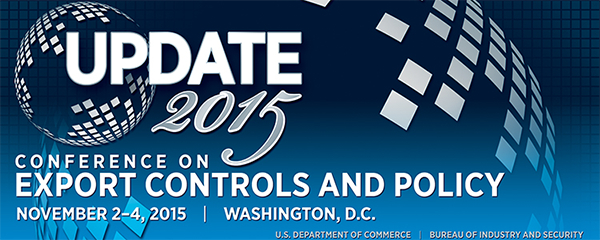![PPI via https://m.facebook.com/ProductionProducts/photos/pb.207851795988965.-2207520000.1438832505./368040763303400/?type=1&source=54 [Fair Use] PPI via https://m.facebook.com/ProductionProducts/photos/pb.207851795988965.-2207520000.1438832505./368040763303400/?type=1&source=54 [Fair Use]](https://www.exportlawblog.com/images/ppi.jpg)
Back in August, we detailed the sad story of Production Products, Â a small family-run business in Maryland that sent OFAC into a tizzy and received a $78,5000 fine because, heaven forfend, the company had never heard of the SDN list and sent HVAC duct manufacturing worth $500,000 to an SDN in China, which equipment is now probably being used to make bombs and missiles and stuff. We took the occasion to suggest that, rather than pitch a fit, OFAC should engage in a bit of reflection and wonder why a small mom-and-pop company in Maryland might never have heard of its SDN list.
Well, Production Products’s woes were scarcely over because BIS, equally annoyed that Production Products doesn’t have someone read the Federal Register cover-to-cover every day, has decided it ought to pile on with its own $50,000 fine for the same violation, as well punishing the company with a year in detention or the equivalent, namely requiring three officials to attend export school and report back to BIS Special Agents with “attendance certificates.”
BIS gets to attend this punching party as a result of section 744.8 of the Export Administration Regulations which makes it a violation of the EAR to deal with any SDN that is listed “with the bracketed suffix [NPWMD].” And that was the case here. The Chinese company on the list has the “bracketed suffix [NPWMD]” which means (for those of you who don’t speak the Low Middle Inflected Dialect of the Exportish language) that they were put on the list for reasons having to do with their involvement in nuclear proliferation and/or weapons of mass destruction.
Like OFAC, BIS was miffed that Precision Products had never heard of the SDN and, as a result, imposed a fine and the requirement that the miscreants take course at Export School and bring back proof of attendance. But, also as was the case with OFAC, this was less an opportunity for BIS to get lathered up than it was an opportunity for self-reflection. What has BIS done to make sure that small businesses know about its arcane and complex regulations?

 Posted by
Posted by  Category:
Category: 

![GE Giraffe Baby Warmer via http://www3.gehealthcare.com/en/products/categories/maternal-infant_care/warmers/giraffe_warmer [Fair Use] GE Giraffe Baby Warmer via http://www3.gehealthcare.com/en/products/categories/maternal-infant_care/warmers/giraffe_warmer [Fair Use]](https://www.exportlawblog.com/images/Giraffe_Warmer.jpg)
![Taminco HQ via Google Maps [Fair Use] Taminco HQ via Google Maps [Fair Use]](https://www.exportlawblog.com/images/taminco_hq.jpg)

![Red Rug by Christopher Sessums [CC-BY-SA-2.0 (http://creativecommons.org/licenses/by-sa/2.0)], via Flickr https://flic.kr/p/x7H2Dp [cropped] Red Rug by Christopher Sessums [CC-BY-SA-2.0 (http://creativecommons.org/licenses/by-sa/2.0)], via Flickr https://flic.kr/p/x7H2Dp [cropped]](https://www.exportlawblog.com/images/persian_rug_co.jpg)


